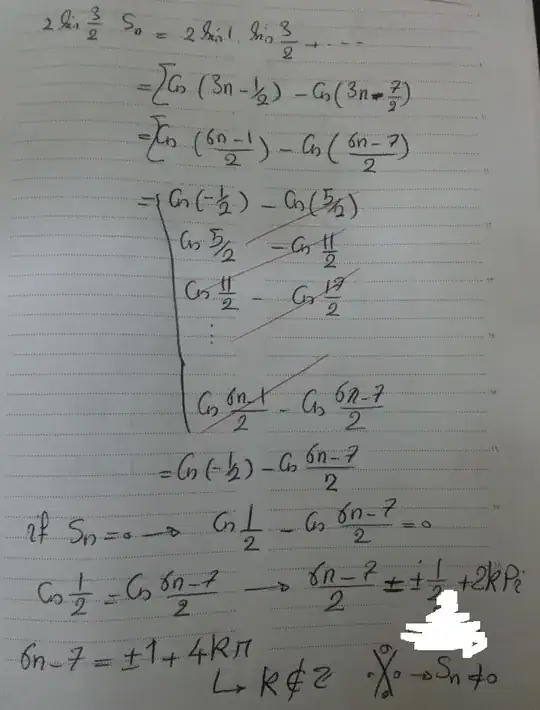let $n$ is postive integer numbers,and let $$S_{n}=\sin{1}-\sin{4}+\cdots+(-1)^{n-1}\sin{(3n-2)}$$ show that $$S_{n}\neq 0, \forall n\in N^{+}$$
My try: maybe this problem use $$2\sin{x}\sin{y}=\cos{(x-y)}-\cos{(x+y)}$$
\begin{align*}2\sin{\dfrac{3}{2}}S_{n}&=2\sin{1}\sin{\dfrac{3}{2}}-2\sin{4}\sin{\dfrac{3}{2}}+\cdots+2(-1)^{n-1}\sin{(3n-2)}\sin{\dfrac{3}{2}}\\ &=\cos{\dfrac{1}{2}}-\cos{\dfrac{5}{2}}-\cos{\dfrac{5}{2}}+\cos{\dfrac{11}{2}}+\cdots \end{align*}
I think this is nice problem, Thank you
 go with product to sum
go with product to sum